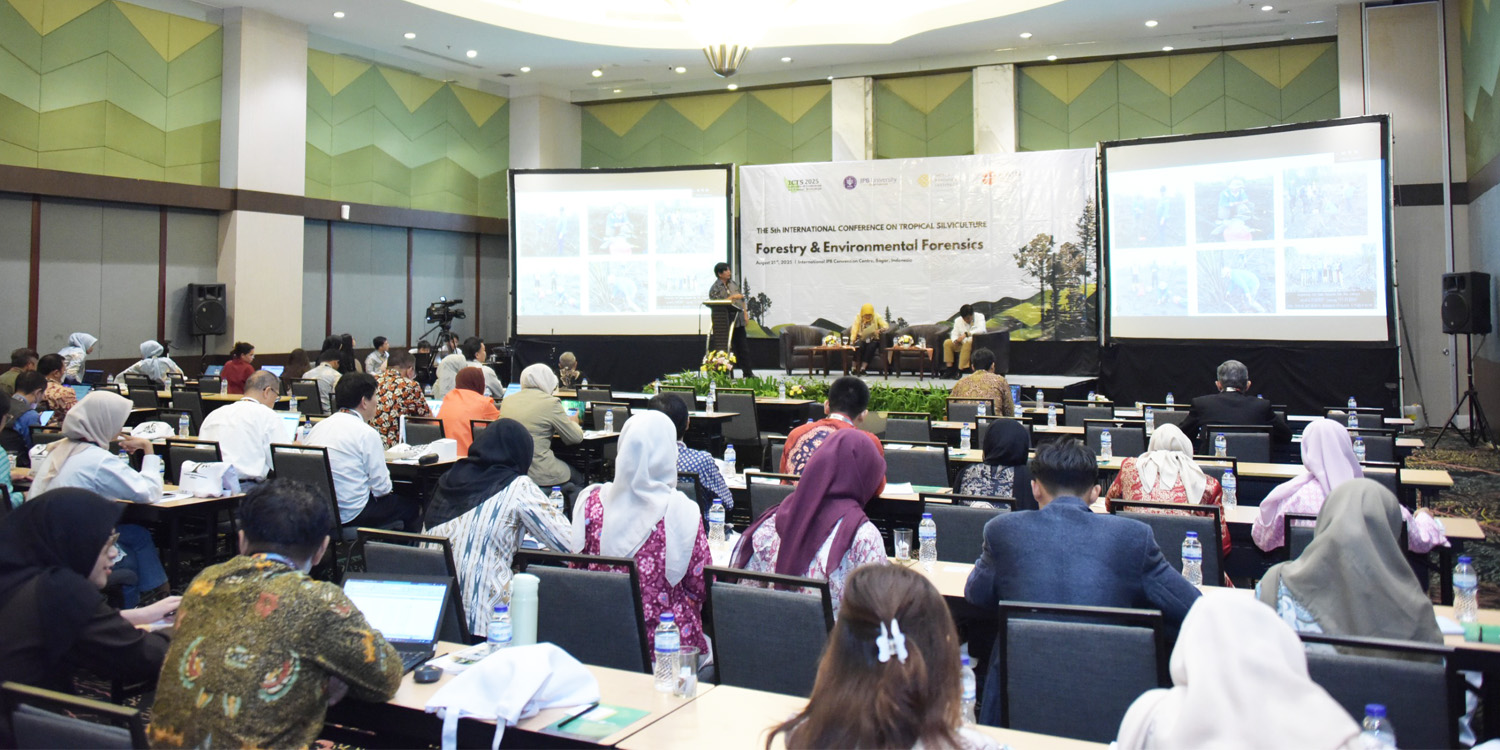IPB University, in collaboration with the international consortium World Resources Institute (WRI) and the National Research and Innovation Agency (BRIN), has once again demonstrated its role as a pioneer of innovation in the field of forestry and the environment.
At the International Conference on Tropical Silviculture (ICTS) 2025 held at the IPB International Convention Center (IICC), Bogor, on Wednesday (8/21), IPB University presented the theme of forensic science as a new strategy in addressing various environmental crime challenges.
IPB University Vice Rector for Global Connectivity, Cooperation, and Alumni, Prof Iskandar Z Siregar, explained that the conference brought together leading experts from within and outside the country. “They presented various technological approaches for wood identification and environmental case handling,” he said.
Prof Iskandar expressed IPB University’s commitment to becoming a pioneer in the development of forensic science and technology in the forestry and environmental sectors.
“In the future, IPB University also aims to establish a forensic laboratory that can analyze plant and wildlife samples to strengthen scientific backup in law enforcement,” he said.
The Chair of the ICTS 2025 Committee, Dr Fifi Gus Dwiyanti, added that this year’s conference explored eight important subtopics, ranging from timber tracking, wildlife tracking, pollution, seed identification, to the use of artificial intelligence (AI) in forestry and environmental forensics.
“Many people are unaware that forensic technology can solve environmental crimes, from illegal logging to wildlife trafficking. With the support of science and technology, the law enforcement process can be much stronger,” she emphasized.
Meanwhile, Prof Bambang Hero Saharjo, Professor at the Faculty of Forestry and Environment, IPB University, emphasized that forensic issues are also relevant to the threat of forest and land fires (karhutla) that are still occurring in Indonesia.
Prof Bambang, who currently serves as Chairman of the Disaster Study Center (PSB) at IPB University, also reminded that karhutla does not only occur in corporate areas, but is also spreading to community lands.
“Many cases of karhutla in communities are even more widespread than those in corporate areas. For example, on Meranti Island, I found a fire covering an area of around 652 hectares. There are also fires covering 300 hectares and even 100 hectares,“ said Prof Bambang.
He emphasized that karhutla must be controlled comprehensively. This includes not only prevention and extinguishing, but also post-fire management.
”We must pursue the perpetrators and hold them accountable for the restoration process. To that end, the involvement of experts is very important so that we know the extent of the damage and how to plan the recovery,“ he explained.
Prof Bambang emphasized that scientific approaches can be used to identify the perpetrators of the fires. ”We have been trying to investigate, and it is not impossible to track down those behind the fires,” he concluded.
Through ICTS 2025, IPB University reaffirms its role as a center for the development of forestry and environmental forensics in Indonesia. With a combination of cutting-edge technology, multidisciplinary research, and the role of academics, IPB University is determined to support efforts to reduce environmental crimes, ranging from illegal logging, wildlife trafficking, to forest and land fires. (AS) (IAAS/STD)
